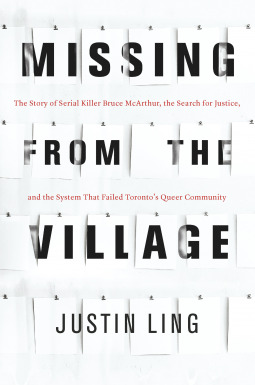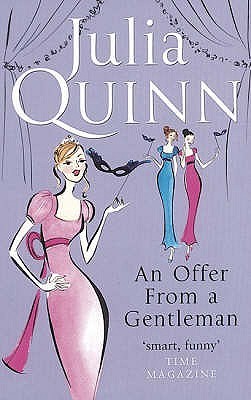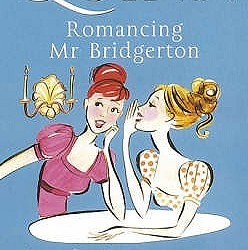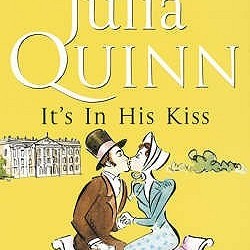#all the tropes in bridgerton are literally the best and then you just ???? took it and made it hotchniss god
Note
Ok, I'll bite. What *is* the difference between Bridgerton and Jane Austen in relationship to their skirts?
Oh! Not in their costuming, just in their general *waves hands* everything. It's a comment I see a lot about Bridgerton: "Well, it's not much like Austen, is it?"
That's because there are 200 years of literary history between the two, and they have not been empty!
This ended up being 1.5k words, but when I put stuff under a readmore, people don't actually read it and then just yell at me because of a misread of the 1/10th of the post they did read. Press j to skip or get ready to do a lot of scrolling (It takes four generous flicks to get past on my iPhone).
First I'll say my perspective on this is hugely shaped by Sherwood Smith, who has done a lot of research on silver fork novels and the way the Regency has been remembered in the romance genre.
The Regency and Napoleonic eras stretch from basically the 1790s to 1820, and after that, it was hard to ignore the amount of social change happening in Britain and Europe. The real watershed moment is the 1819 Peterloo Massacre, where 60,000 working-class people protesting for political change were attacked by a militia. The issues of poverty, class, industrialization, and social change are inescapable, and we end up with things like the 1832 Reform Act and 1834 Poor Law.
This is why later novelists, like Charles Dickens and Elizabeth Gaskell, are so concerned with the experiences of the urban poor. Gaskell's North and South has been accurately described as "Pride and Prejudice for socialists."
So almost as soon as it ended, people started to look back and mythologize the Regency as a halcyon era, back when rich people could just live their rich lives and fret about "only" having three hundred pounds a year to live on. Back when London society was the domain of hereditary landowners, when you weren't constantly meeting with jumped-up industrialists and colonials.
Jane Austen is kind of perfect for this because she comes at the very end of the long eighteenth century, and her novels show hints of the tremors that are about to completely reshape England, but still comfortably sit in the old world. ("The Musgroves, like their houses, were in a state of alteration, perhaps of improvement. The father and mother were in the old English style, and the young people in the new. Mr and Mrs Musgrove were a very good sort of people; friendly and hospitable, not much educated, and not at all elegant. Their children had more modern minds and manners.")
Sherwood Smith covers the writers who birthed the Silver Fork genre in detail, but there's one name that stands out in its history more than any other: Georgette Heyer.
Georgette Heyer basically single-handedly established the Regency Romance as we know it today. Between 1935 and 1972, she published 26 novels set in a meticulously researched version of London of the late 18th and early 19th century. She took Silver Fork settings and characters and turned them into a highly recognizable set of tropes, conventions, and types. (As Sherwood points out, her fictional Regency England isn't actually very similar to the period as it really happened; it's like Arthurian Camelot, a mythical confection with a dash of truth for zest.)
Regency Romance is an escapist genre in which a happy, prosperous married life is an attainable prize that will solve everything for you. Georgette Heyer's novels are bright, sparkling, delightful romps through a beautiful and exotic world. Her female characters have spirit and vivacity, and are allowed to have flaws and make mistakes without being puritanically punished for them. Her romances have real unique sparks to them. She's able to write a formula over and over without it becoming dull.
And.... well. The essay that introduced me to Heyer still, in my opinion, says it best:
Here's the thing about Georgette Heyer: she hates you. Or, okay, she doesn't hate you, exactly. It's just that unless you are white, English, and upper class (and hale, and hearty, and straight, and and and), she thinks you are a lesser being.
[...W]ith Heyer, I knew where I stood: somewhere way below the bottom rung of humanity. Along with everyone else in the world except Prince William and four of his friends from Eton, which really took away the sting.
But my point is: if you are not that white British upper-class person of good stock and hearty bluffness and a large country estate, the only question for you is which book will contain a grimly bigoted caricature of you featuring every single stereotyped trait ever associated with your particular group. (You have to decide for yourself if really wonderful female characters and great writing are worth the rest of it.)
So Heyer created the genre, but she exacerbated the flaw that was always at the heart of fiction about the Regency, was that its appeal was not having to deal with the inherent rot of the British aristocracy. I think part of why it's such a popular genre in North America specifically is that we often don't know much British history, so we can focus more on the perfume and less on the dank odor it's hiding.
And like, escapism is not a bad thing. Romance writers as a community have sat down and said: We are an escapist genre. The Romance Writers of America, one of the biggest author associations out there, back when they were good, have foundationally said: "Two basic elements comprise every romance novel: a central love story and an emotionally satisfying and optimistic ending." A strong part of the community argue that publishing in the genre is a "contract" between author and reader: If it's marketed as a romance book, there's a Happily Ever After. If there's no Happily Ever After, it's not romance.
It's important for people to be able to take a break from the stresses of their lives and do things that are enjoyable. But the big question the romance genre in particular has to deal with is, who should be allowed to escape? Is it really "escapist" if only white, straight, upper class, able-bodied thin cis people get to escape into it? In historical romance, this is especially an issue for POC and LGBTQ+ people. It's taken a lot of work, in a genre dominated by the Georgette Heyers of the world, to try to hew out the space for optimistic romances for people of colour or LGBTQ+ people. These are minority groups that deal with a literally damaging amount of stress in real lives; they are in especial need of sources of comfort, refuge, community, and encouragement. For brief introductions to the issue, I can give you Talia Hibbert on race, and KJ Charles on LGBTQ+ issues.
Up until the 1990s, the romance genre evolved slowly. It did evolve; Sarah Wendell and Candy Tan's Beyond Heaving Bosoms charts the demise of the "bodice-ripper" genre as it became more acceptable for women to have and enjoy sex. The historical romance genre became more accommodating to non-aristocratic heroines, or ones that weren't thin or conventionally pretty. The first Bridgerton book, The Duke and I, was published in 2000, and has that kind of vibe: Its characters are all white but not all of them are aristocrats, its heroines are frequently not conventionally beautiful and occasionally plump, and its cultivation to modern sensibility is reflected in its titles, which reference popular media of today.
This is just my impression, but I think that while traditional mainstream publishing was beginning to diversify in the 1990s, the Internet was what really made diverse romance take off. Readers, reviewers, and authors could talk more freely on the internet, which allowed books to become unlikely successes even if their publishers didn't promote them very much. Then e-publishing meant that authors could market directly to their readers without the filter of a publishing house, and things exploded. Indie ebooks proved that there was a huge untapped market.
One of my favourite books, Zen Cho's Sorcerer to the Crown, is an example of what historical romance is like today; it's a direct callback and reclamation of Georgette Heyer, with a dash of "Fuck you and all your prejudices" on top of it. It fearlessly weaves magic into a classic Heyer plot, maintaining the essential structure while putting power into the hands of people of colour and non-Western cultures, enjoying the delights of London society while pointing out and dodging around the rot. It doesn't erase the ugliness, but imagines a Britain that is made better because its poor, its immigrants, its people of colour, and the foreign countries it interacts with have more power to make their voices heard and to enforce their wills. Another book I've loved that does the same thing is Courtney Milan's The Duke Who Didn't.
So then... Bridgerton the TV show is trying to take a book series with a very middle-of-the-road approach to diversity, differing from Heyer but not really critiquing her, and giving it a facelift to bring it up to date.
So to be honest, although it's set in the same time period as Austen, it's not in the least her literary successor. It's infinitely more "about" the past 30 years of conversation and art in the romance genre than it is about books written 200 years ago.
1K notes
·
View notes
Photo





I said at the beginning of the year that I would share my reviews more on my blog instead of just on Instagram and Goodreads. I’ve been reading a lot so far this year, so my reviews will be delayed on here.
Friend me on Goodreads here to read my reviews in real-time!
___
86. Missing From the Village by Justin Ling--⭐️⭐️⭐️⭐️⭐️
This was such a powerful read. I highly encourage everyone to pick this one up--especially if you want to read more about the history of violence that the police has inflicted on the LGBTQ+ community in Toronto.
I mention this particular topic because there is this one moment in the book where the author explains the events that lead up to the LGBTQ+ community having such little confidence in the police. The abuse and the spying, the false accusations and vilification of the community, the ignored missing and murder cases, the mishandling of evidence and cases, the gaslighting that the police did after McArthur was caught--these were all written so powerfully.
And keep in mind, that the McArthur case was finally concluded not even close to ten years ago.
This book also inspired me to look for more LGBTQ+ true crime books. There are so many missing people and so many serial killers that were overlooked because of the victims they hunted.
Ling made a really good point in his book: the way that these victims' bodies were treated by their killers after they were murdered shows the idea that they thought them disposable because they were LGBTQ+. In some ways, I think this could also be an amazing representation of what happened with this case, where friends and families TOLD the police that something was wrong yet were either ignored, told that little could be done, that they were doing their best (when, for example, one person didn't appear in a missing persons database for far longer than the family was told), or the family had to be the one constantly contacting the police for any new details. They constantly called and put up posters, and searched--until they grew exhausted from the lack of help.
I don't really know how to review a true crime book, but what I CAN try and say is that this is an incredibly powerful book that is often difficult to read--but it's sometimes important to read things that are difficult in order to learn from them. (Thanks to an Instagram follower who gave me that insight!)
___
87. An Offer From A Gentleman by Julia Quinn--⭐️⭐️⭐️⭐️⭐️
My favourite. This one was my favourite BRIDGERTON book. I cried, I felt so many emotions, and I wanted poor Sophie to get her revenge. I kept telling myself to put the book down because I had to sleep, but alas, here I am. I finished this book so quickly and I regret nothing.
Some of the books in this series are alright, but then you get ones like this one that make me so happy I gave this series a shot.
___
88. Romancing Mr. Bridgerton by Julia Quinn--⭐️⭐️⭐️
While I enjoyed this one for the most part, I’m a little disappointed. I was so excited for the friends to lovers trope, and that bit was great. But phew, Colin. Colin and his temper. He literally scared Penelope a few times because of his grip on her arm, or that anger that would appear over a topic I can’t say because it’s a spoiler.
I thought Colin would be a bit more...laid back. I get that these are written during a time when women are second class citizens to men, but it doesn’t make it any easier to read about how a woman’s reputation might be ruined over this or that.
But that being said, I’m happy Penelope got her happy ending! Lord knows she needed it, especially with how everyone treats her.
Not my favourite in the series, but I’m so happy I’ve read this because now I’m closer to finishing this series!
___
89. Those Not So Sweet Boys Vol 1 by Yoko Nogiri--⭐️⭐️⭐️⭐️
I’ll admit that it took me a while to get into this one at first, but when I finally got into it, I grew invested. There’s a clear favourite boy that the MC is falling for, but I’m intrigued by how the other two are acting. Especially that cliffhanger!
___
90. It’s In His Kiss by Julia Quinn--⭐️⭐️⭐️
I can’t believe I’m almost done this series! I was a little wary of this one going in because the female MC still felt like a child in my mind. It was a little surreal reading a spicy scene with her and her love interest when I have read so many books depicting her at a much younger age.
I also wasn’t a big fan of the male MC’s reasoning behind some of his actions. It felt a little gross to me.
This one is getting a three, though, for those moments of humour and satisfaction that comes when a bad character gets the karma they deserve. Also, I loved seeing Violet in this and the female MC’s younger brother. I’m a little sad that a lot of the other siblings and their spouses didn’t really make much of an appearance—I find that they’re the little Easter eggs that give this series that extra touch of fun.
___
Have you read any of these books? Would you recommend them?
___
Happy reading!
#books#booklr#bookish#bookworm#bookaholic#bibliomania#bibliophile#on books#on reading#read#reader#reading#Features#review#reviews#my reviews#my writing#my opinions#book blog#book blogger#reviews of the week
6 notes
·
View notes